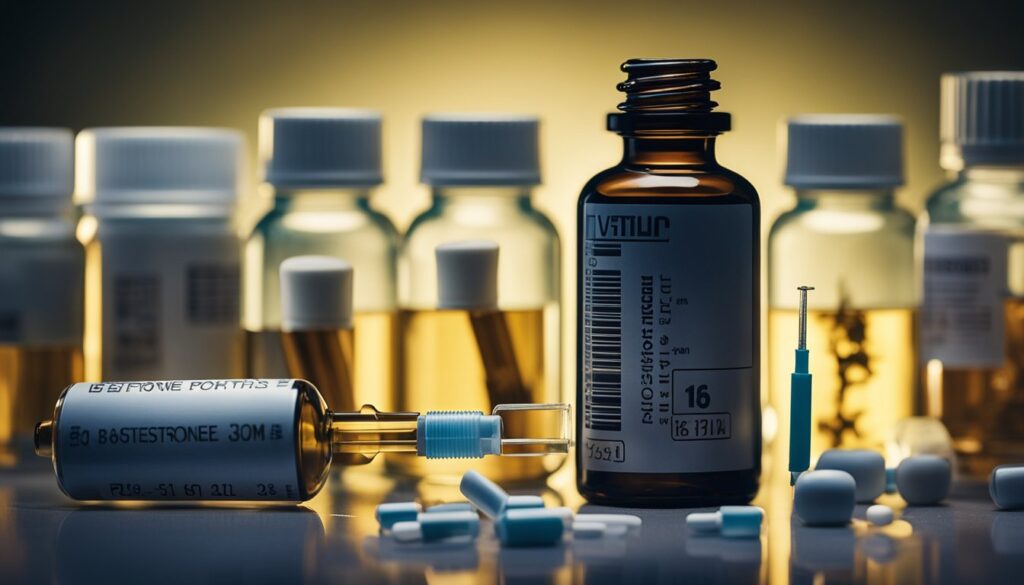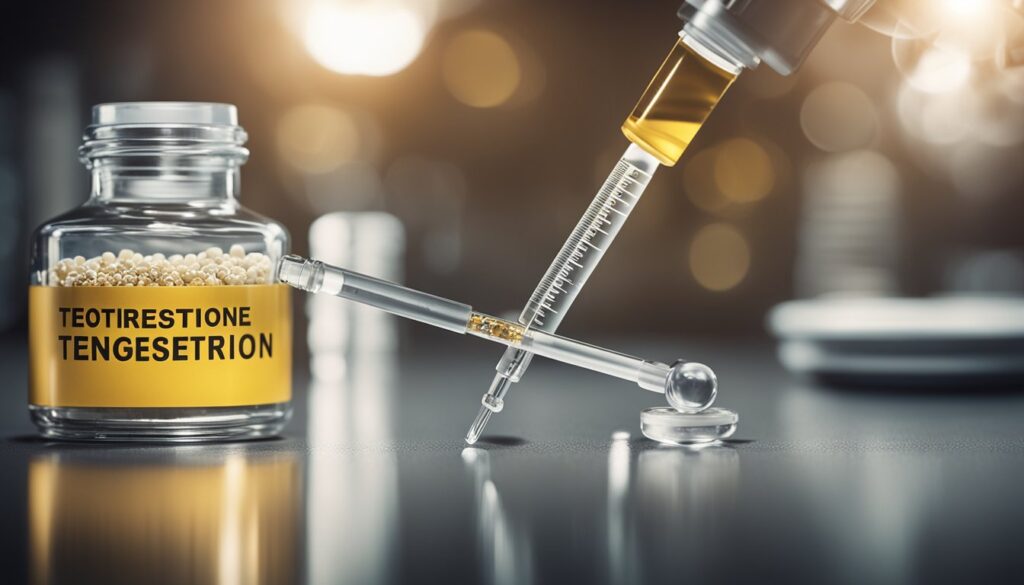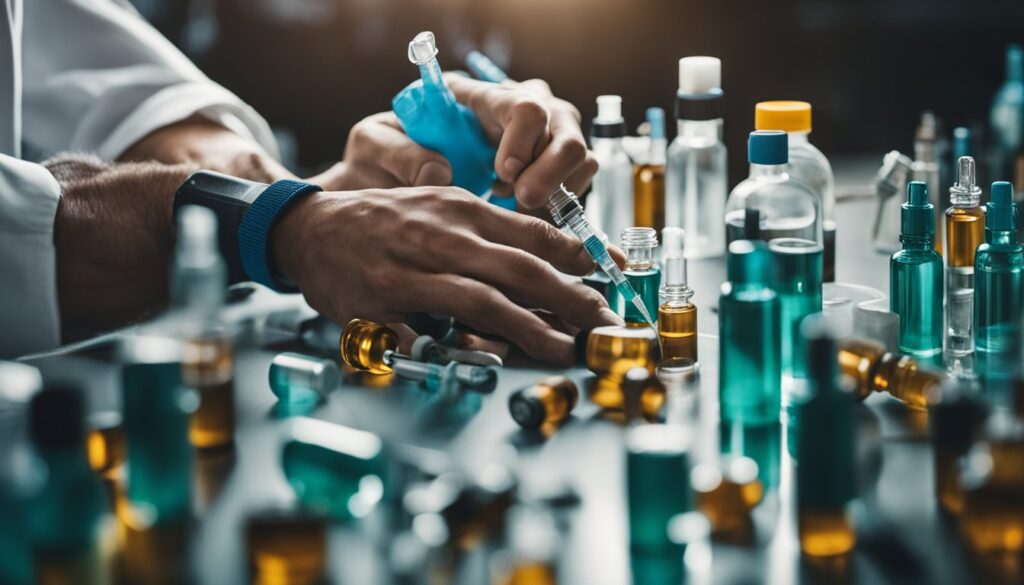Testosterone, a hormone primarily produced in the male testes and, to a lesser extent, in female ovaries, plays a crucial role in developing male secondary sexual characteristics and maintaining muscle mass, bone density, and general health. However, when used outside of prescribed medical treatment, testosterone can become a substance of abuse. You might be aware of its use among athletes and bodybuilders aiming to enhance their performance and physique, but the non-medical use of testosterone, particularly at doses exceeding those recommended for therapeutic purposes, poses significant health risks.

Abuse of testosterone often occurs in conjunction with other anabolic androgenic steroids (AAS), a class of synthetic derivatives of testosterone that can have profound effects on the body. While the prescribed use of testosterone and other androgens is an important therapy for some medical conditions, their misuse can lead to adverse effects, including hormonal imbalances, psychological issues, and increased risk of cardiovascular diseases. Understanding the implications of testosterone abuse is essential, whether you are a healthcare professional encountering it in clinical practice or an individual considering or witnessing its use in sports or gym environments.
Considering the societal emphasis on physical appearance and sporting success, it’s not surprising to see the prevalence of testosterone and other androgens misuse. It’s important to stay informed about the potential consequences of such actions, as they not only concern individual users but also pose broader public health concerns. To maintain your health and well-being, ensuring that any use of testosterone or similar compounds is medically justified and professionally supervised is paramount.
Testosterone Abuse and Health Risks

Testosterone abuse involves using supraphysiological levels far exceeding what is medically prescribed for testosterone replacement therapy. This practice leads to a range of health risks that affect various body systems and can result in both acute and chronic complications.
Liver and Cardiovascular Complications
Abusing testosterone or other anabolic steroids can lead to serious liver complications, such as liver toxicity and hepatocellular carcinoma. Cardiovascular risks include a higher likelihood of heart failure, stroke, and other heart-related events, especially with the chronic use of high doses.
Hormonal and Reproductive Issues
Hormonal imbalances due to androgen abuse often lead to testosterone deficiency and hypogonadism once the abuse is stopped. In addition to causing potential infertility, these hormonal changes can also manifest as low testosterone levels, disrupting normal endocrine function.
Psychological and Behavioral Effects
Psychological issues like aggression and depression have been linked with testosterone and steroid abuse. Behavioral changes may also include increased risk-taking, leading to a pattern of abuse and dependence.
Regulatory Issues and Illicit Usage
The misuse of testosterone for performance enhancement is considered doping and is against regulatory policies for most sports. Athletes and bodybuilders may use illicit means to acquire performance-enhancing substances, which is not only illegal but also poses significant safety risks.
Detection and Prevention of Androgen Abuse
Physicians use serum testosterone concentration measurements along with other signs to detect androgen doping. FDA-approved indications and physicians’ guidelines aim to prevent misuse. Public awareness campaigns are also crucial in curbing the non-medical use of testosterone and steroids.
Treatment and Management of Abuse
When dealing with testosterone or anabolic steroid misuse, it is crucial to taper off the substance to prevent withdrawal symptoms. Treatment options may involve androgen treatment under a physician’s guidance to manage symptoms of androgen deficiency and testosterone therapy to address late-onset hypogonadism.
Societal and Historical Context of Testosterone Use

Exploring the context of testosterone use requires understanding its cultural significance, medical evolution, regulatory environment, and its impact on health and aging.
Cultural Perception of Masculinity and Strength
Testosterone has long been associated with masculinity and strength. This linkage has both shaped and reflected societal attitudes towards what it means to be a man. In the realm of sports and bodybuilding, the desire for enhanced strength and physique has led many to seek the muscle-building properties of anabolic androgenic steroids (AAS), often without considering the potential health risks.
Development and Evolution of Androgen Treatments
The historical perspective of testosterone’s medical application began with Charles-Édouard Brown-Séquard’s work on glandular transplantation. Since the isolation of testosterone, or as it was first known, mannliches hormon, there has been significant progress in androgen prescribing practices. The synthesis of the first synthetic male hormone opened up new avenues for treating conditions like Klinefelter syndrome, androgen deficiency symptoms, and male infertility.
The Ethics and Regulation of Performance Enhancement
The line between therapeutic use and performance enhancement is a topic of ethical debate. Elite athletes have been known to misuse testosterone and its synthetic derivatives for nonmedical application, raising questions about the regulation of these substances. Misuse for purposes such as image enhancement can lead to disease mongering and the inappropriate treatment of aging male symptoms with commercialization motives.
Impact of Testosterone on Health and Aging
While some view testosterone as a glandular fountain of youth with anti-aging and rejuvenation properties, its impact is complex. Testosterone levels naturally decline as men age, often leading to age-associated declines in testosterone, but this doesn’t necessarily merit treatment. Incorrect use can lead to adverse effects, including an increased risk of cardiovascular diseases and problems related to prostate disease. It’s important to understand one’s androgen status and the balance between potential benefits and health risks, especially in elderly men and those with obesity or other health concerns.
Frequently Asked Questions

Understanding the consequences of anabolic steroid abuse is critical for your health and wellbeing. These FAQs provide clear, concise information to help you grasp the risks and legalities.
What are the common side effects associated with the use of anabolic steroids?
When you use anabolic steroids, you may face side effects such as liver problems, increased blood pressure, and fluid retention. Misuse can also result in hormonal imbalances and changes in blood lipid levels.
How do performance-enhancing drugs impact long-term health?
Performance-enhancing drugs can severely impact your long-term health, potentially causing heart problems, psychiatric disorders, and endocrine dysfunction. The duration and amount of abuse often exacerbate these health issues.
What are the potential risks and benefits of steroid use in bodybuilding?
The risks of steroid use in bodybuilding include organ damage, psychological dependence, and negative alterations in cholesterol levels. While there may be a short-term improvement in muscle mass and strength, these benefits are overshadowed by the significant health risks.
Is there a legal distinction between anabolic steroids for medical use and performance enhancement?
Yes, there’s a legal distinction. Anabolic steroids prescribed by a doctor are lawful for treating medical conditions. However, using steroids without a prescription for performance enhancement is illegal and can result in penalties.
How can anabolic steroid use affect personal relationships and emotional well-being?
Abusing anabolic steroids can lead to mood swings, aggression, and depression, which may strain your personal relationships. It can also affect your self-esteem and body image, impacting your emotional well-being.
What are the indications of hormonal imbalance due to steroid misuse?
Signs of hormonal imbalance from steroid misuse include reduced sperm count, testicular atrophy, gynecomastia in males, and irregular menstrual cycles in females. These changes can lead to infertility and other long-term reproductive issues.